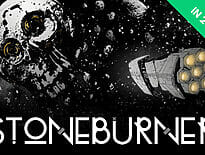One day, I’m going to run a huge creaking Call Of Cthulhu campaign. One of the big ones that take a long while to get through and covers several countries worth of content, like Masks Of Nylarthotep, Horror On The Orient Express or Children Of Fear.
I’ve been telling myself this for like twenty years now; it’s like my white whale. But it’s going to happen. I feel like I’m closer now than I have been now I finally own one of these campaigns, I might actually get a chance. Only problem is, last time I canvassed my players, there was little to no interest in Cthulhu or the mythos.
So what am I to do?
I can’t lie to players – but on the other hand I know a few players who I feel would really enjoy this game & campaign. Why am I even adding this to a column? Well, in discussing this problem recently, I discovered something that I hadn’t considered before. That maybe using the word ‘Genre’ around players is a stupid idea.
Listen. I know what I called the column. But stay with me for a second. I still value the idea of reinforcing a genre with rules and creating a specific atmosphere. I think it’s important enough that I want to revisit the whole idea soon. But before I do, I want to just take a look at how we pitch to players and how when we use shorthand, we have a problem.
That Word Doesn’t Mean What You Or I Think It Does
In the same vein as the Cthulhu game, I’ve been trying to get a game of Zweihander off the ground for a while. Whatever you think of the controversies surrounding the game’s creative team, it’s a solid grimdark game that doesn’t have an assumed setting, and I think it will scratch an itch I have as a GM.
But all this time I have been sort of on the sly pitching it to a player who I think would really enjoy it. And finally, the other day, I asked her why she was lukewarm on the idea, and she said, ‘I don’t like grimdark’.
And I went away for a while. I thought about it. And later the same day I messaged her and asked what she hated, and she gave a description of the genre that didn’t fit with my concept of it at all. Suddenly we realised we were in very different spaces. When I mentioned to her that the Witcher and Dark Souls also fit in Grimdark, she suddenly realised what sort of game I was talking about, and it wasn’t what she’d imagined (which seemed to be some sort of Ravenloft with all the fun bits taken out) and that we’d just seen the genre categories differently.

And it dawned on me. The Categories are too big to pitch a game or explain to people.
If I describe a game as Space Opera, what does that even mean? Is it like Star Wars? Star Trek? Battlestar Galactica? Flash Gordan? Is Sybaroum Dark Fantasy, Grimdark, Sword and Sorcery? It gets complex really quickly.
When I asked her what would be a better way she suggested cultural touchstones, so I asked if she’d like to play a game that was like ‘The Witcher, Dark Souls, Warhammer & Les Mis combined’ and she said she didn’t like Les Mis. Absolutely heretical theatrical tastes aside, that still left me a place to discuss why and while we probably won’t play that game, it gave me an insight to what the player was thinking and how her interests might be better served in the game.
Every year, I have a survey of my player base and always ask about genre. I now realise I should instead ask, ‘what media do you like? And what about that would be good to see in a game’. The answer is more personal and will allow me to not only plan games but set up moments for players that feel like those games in the games I run. This approach is more player focused and allows for an open discussion about new ways to take a game.
I’m really looking forward to just being interested in what my players are interested in and sharing that love by understanding the sort of storytelling they enjoy. Can create a checklist of ‘ingredients’ for each campaign.
And then, I realised that this is what Appendix N was for.
Appendix N

The now famous Appendix N was an appendix in the back of the AD&D monster manual and was basically a list of things Gary Gygax was into and wanted his game to resemble. Now when AD&D arrived, its purpose was to give Gary control of the creative direction of the game through the consolidation and reworking of the rules. But Appendix N was also trying to do some other reworking – it defined what type of fantasy D&D had been based off in its inception and said ‘stylistically, this is where I think we are’. Including Poul Anderson and Manly Wade Wellman in that list and not Ursula LeGuin made a clear statement in what games Gary expected to be run.
And seeing LeGuin’s name in the ‘Appendix E’ in the fifth edition tells me how and where the game has evolved and the sort of stories it now expects me to be telling. It gives me media to source ideas from.
So why shouldn’t I borrow this? Why shouldn’t I create a better version of every pitch? Some games sell themselves on this – Kids On Bikes can’t scream ‘Like Stranger Things?’ harder if it tried. It’s attracting the right people on name alone. Its players know what the touchstone for the game are before session zero has even started. I need that kind of way of generating interest.
So for my Cthulhu campaign, I will be looking for people who like Lovecraft and horror games, but also casting a wider net to people who like Journey To The West, Old Chinese Kung Fu Movies, Indiana Jones And The Temple Of Doom and the 90’s Tintin cartoons. In fact, I might be asking if people like these specific things and then offering it to particular players who answer ‘yes’ as a future possibility.
It also gives the players an expectation as well as a reading list if they need to understand. The point is to not get caught up in your idea of what you are supposed to be delivering because a good game will to that for you. Instead, work the game towards your players; not only discussing the game and rules with them but likes and interests allows you to create a shared ground for storytelling early on that will serve you well going forward.
What do your campaigns resemble? I’d love to hear. Until then, I’ll see you next time, where I start to think about revisiting some old ideas.
🤖AI Disclosure. Software helped create images in this post. Geek Native's AI Content Policy.


